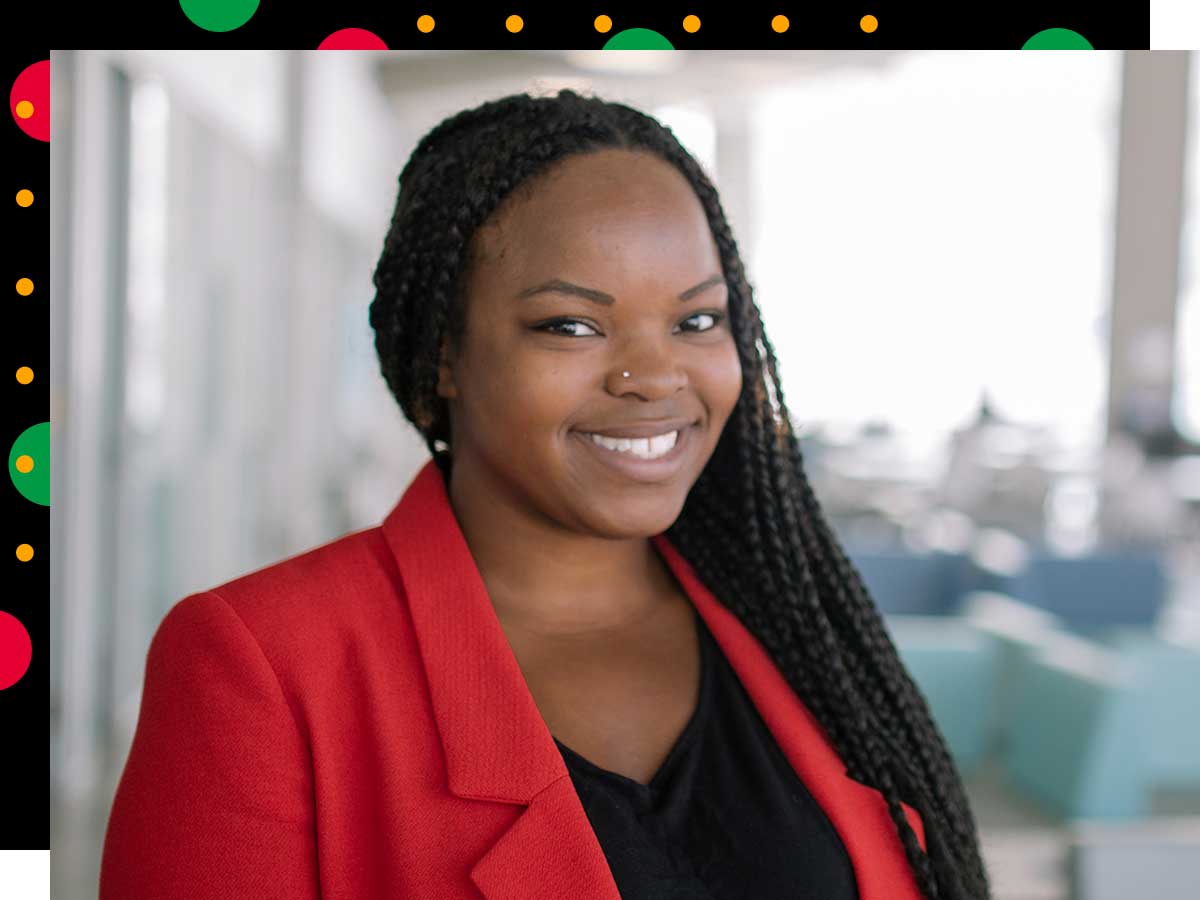Two alumni create inclusive spaces in education

Left: Patrice Hall-Johnson, Early Childhood Studies ’10; Right: Cyesha Craigwell-Forde, Human Resource Management ’09
For Black and racialized students, navigating education systems can be challenging. Two alumni in the education sector share their stories and what inspired them to create more equitable spaces in schools.
Building a strong foundation

Patrice Hall-Johnson
Early Childhood Studies ’10
With an educator for a father and a superintendent for a grandmother, it’s no surprise that Patrice Hall-Johnson, Early Childhood Studies ’10, became a teacher. Even with her family’s ties to the education sector, personal experiences with teachers as an impressionable young student spurred Hall-Johnson’s desire to become an educator.
“I’ve had positive and negative experiences in the Ottawa school system,” she recalled. “It wasn’t always sunshine and roses and, interestingly enough, that negative experience reinforced my decision to be an educator because I did not want students to have the same experience that I did.”
Her work with kindergarten students was recognized with the 2023 Prime Minister’s Certificate of Achievement (external link, opens in new window) for Leadership in Education, one of the highest honours for teachers in the country. Throughout her 14-year career, Hall-Johnson has taught various elementary school grades, served as a resource teacher in a high school and spent the last decade teaching kindergarten.
“I love it because, for those little ones coming into my classroom, their first experience in a formal school setting is with a racialized educator,” she said. “I focus on creating a community in the classroom where everyone feels celebrated within their own culture because we’re all important.”
Hall-Johnson’s passion for creating equitable spaces extends beyond her students to her peers. She volunteers as a mentor for the Ottawa Catholic School Board’s New Teacher Induction Program and Black Educators Network (BEN). She also serves as co-chair of the BEN’s promotion and advocacy committee.
“With the Black Educators Network, sometimes it’s a matter of just being a shoulder to lean on and an ear to listen, because there are a lot of frustrations and it can be very laborious [as a new teacher],” Hall-Johnson said.
Though Hall-Johnson recognizes making a difference in the world will not happen overnight, she hopes the work that she is doing with her peers and students will resonate. She proudly says she’s “here to stir the pot.”
“We are planting seeds for the next generation, and we play a very important role in how our students view themselves, others and the world at large,” Hall-Johnson said. “I’m hoping they can be proud of themselves and have that confidence as they continue their educational journey.”
The importance of community in post-secondary education

Cyesha Craigwell-Forde
Human Resource Management ’09
Though Cyesha Craigwell-Forde, Human Resource Management ’09, and Hall-Johnson both work in the education sector, they support students at different stages in their academic journey.
Craigwell-Forde’s career path, however, was not straightforward.
After graduating from TMU, she explored various roles in the public and private sectors, but could not find her passion. Eventually, she realized that what she wanted more than anything was a purposeful career. This realization led her to return to school to pursue a teaching degree from the Ontario Institute for Studies in Education at the University of Toronto. After working as a teacher abroad for a year, she eventually returned to TMU as an International Recruitment Officer.
“I really enjoyed seeing the direct impact of my work,” said Craigwell-Forde. “I loved helping students find their chosen path, wherever that led them.”
Craigwell-Forde spent six years in student recruitment before seeking new ways to assist students. She was eventually hired as the Tri-Mentoring Program (TMP) manager at TMU. In her current role, Craigwell-Forde and her team provide mentorship programming to post-secondary students, helping them to feel a sense of belonging on campus. The program mainly focuses on offering group, peer and career mentoring to equity-deserving groups.
“Through our Black-identified student support services, we are able to provide spaces like the Black Student Lounge,” she explained. “It’s also about defining what that space should be and what would best serve them to bring a sense of community onto campus.”
According to the TMP website, since its inception in 2001, more than 30,000 students have benefitted from the program’s services. BMO has been a lead donor in TMP since its earliest days, supporting it through expansion of programming for students from equity-deserving groups, including 2SLGBTQ+ students, students with disabilities, and more. The program also enjoys the loyal support of a number of annual donors to whom the university is most grateful. In addition to group, peer and career mentoring, TMP provides specialized programs, such as the Race Forward, Black Student Experience and First Generation Programming and Community Outreach.
“It’s about building community and working with students,” said Craigwell-Forde. “When I look at the work that my team does as it relates to the support of Black students, it helps them build a strong foundation, which enables them to excel at the academic part of their TMU journey.”
The ability to help create more welcoming and inclusive spaces for students has helped Craigwell-Forde channel her passion for positively impacting people’s lives.
“I enjoy seeing the students I encounter chart their path and charge forward while being sure of themselves,” she said. “Them being able to see that vision and next steps for themselves — those are the things that, directly or indirectly, the Tri-Mentoring Program can do.”
Do you want to become a career mentor?
Learn more about how you can volunteer with the Tri-Mentoring Program today.